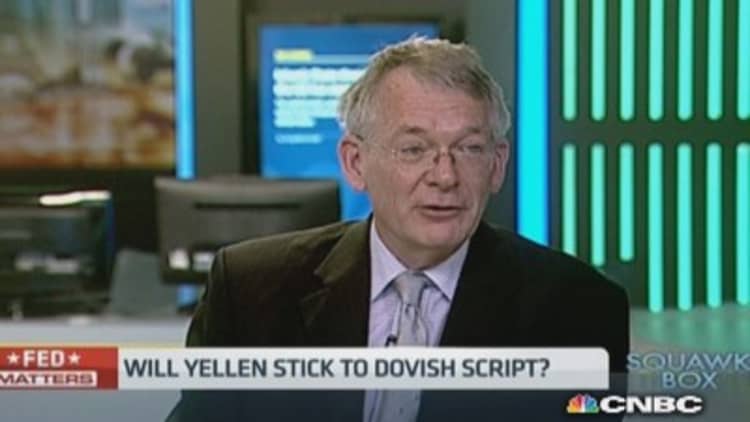Quantitative easing (QE) programs by central banks under the right conditions will always have a positive outcome for household demand, according to Willem Buiter, chief economist at Citi, who predicts that Japan and the euro zone will soon launch "massive" stimulus packages.
In a 52-page thesis released on Thursday, the economist analyses Milton Friedman's principles on "helicopter money", giving the example of permanent QE – the irreversible open market purchase of sovereign debt by central banks. He concludes that three conditions need to be met for QE to "always" boost aggregate demand.
"Deflation, 'lowflation' and secular stagnation are therefore unnecessary. They are policy choices," he said in the paper. "State-issued fiat money is indeed net wealth to the private sector."
Read MoreIMF's Lagarde urges ECB to consider QE
Boost to demand?
The three conditions that need to be met, according to Buiter, are that there needs to be benefits to holding that money other than its rate of return. It also needs to be irredeemable and viewed as an asset, and nominal interest rates need to be positive.
He also tries to dispel the idea that households will try to save money in times of easy liquidity in order to pay for future tax increases that may be initiated to pay off the debt. He believes that the issuance of money is effective in boosting household demand regardless of this theory.
Buiter name checks former Federal Reserve Chairman Ben Bernanke, who launched a total of three quantitative easing programs in the U.S. following the global financial crash of 2008. "Ben Bernanke spent years living down the moniker 'Helicopter Ben'", according to Buiter, whose new thesis is in direct conflict with the idea that QE has had little effect on the real economy and should be swiftly removed.
Read MoreBernanke's 'ruinous' QE will lead to rapid inflation: SocGen's Albert Edwards
Some economists would disagree with Buiter, believing that the extra liquidity has simply inflated asset prices and added to the bank balances of major corporates who have been busy buying back their own stock in a period of consolidation for the financial world. As well as the Federal Reserve, the Bank of Japan (BoJ) and the Bank of England (BoE) have both engaged in the policy with the European Central Bank (ECB) stating that it stands ready to follow in their footsteps.

'Massive QE ahead'
As well as releasing the new economic paper, Buiter has predicted the next big policy moves for central banks for the American multinational bank Citi. In a fresh note also released on Thursday, Buiter and his team of analysts predict a future divergence between the four main advanced economies.
Read MoreStop 'retarding' economies with ultra-loose monetary policy: BIS
"We believe that early easing by both the BoJ and ECB is more likely than the consensus view. We look for both central banks to downgrade their economic forecasts and to launch major QE programs in (the fourth quarter of 2014) or perhaps (the first quarter of 2015)," he said in the research note.
"By contrast, the U.K. remains likely to tighten in the next six months or so, with the Fed likely to start to hike rates about a year from now."



